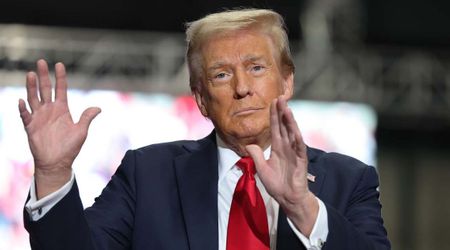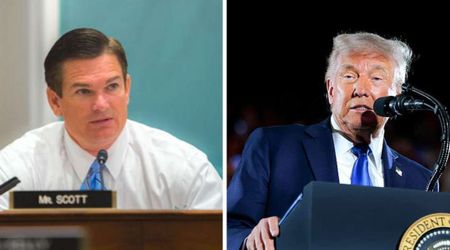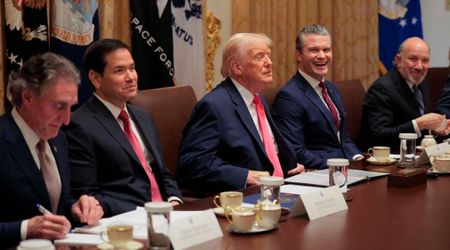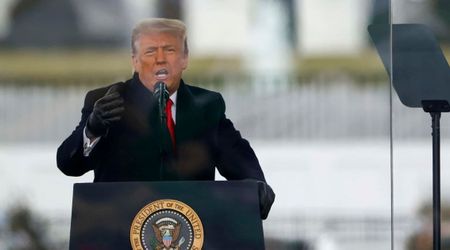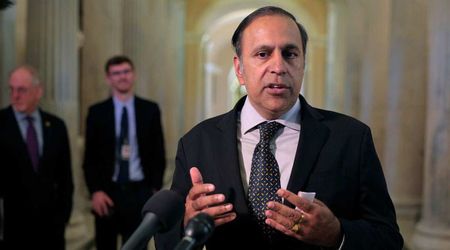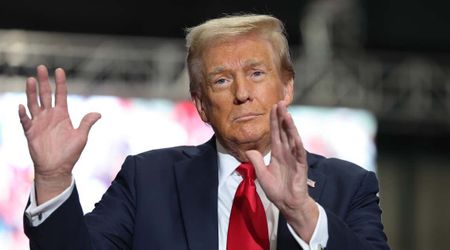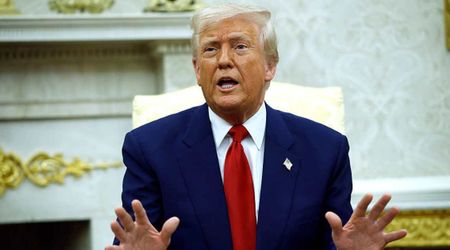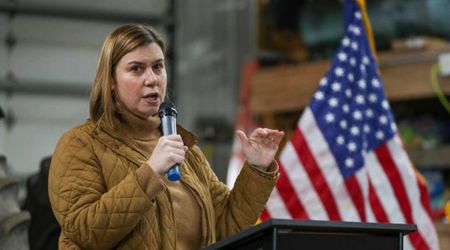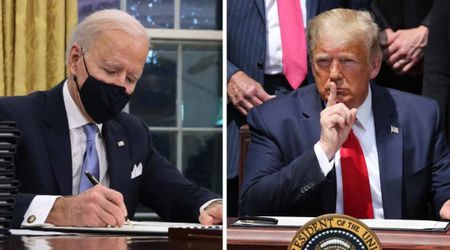Trump hints at ‘mindbogglingly historic’ settlement with Harvard amid battle over grants and visa ban

WASHINGTON, DC: President Donald Trump announced on Friday, June 20, that a potential agreement with Harvard University is close to being finalized, signaling a dramatic turn in a long-simmering dispute between his administration and the Ivy League institution.
The development comes after months of escalating conflict over the administration’s claims that Harvard has failed to address antisemitism on campus and has exhibited institutional liberal bias.
Trump’s remarks, made in a post on Truth Social, mark a notable shift in tone, moving from confrontation to potential reconciliation.
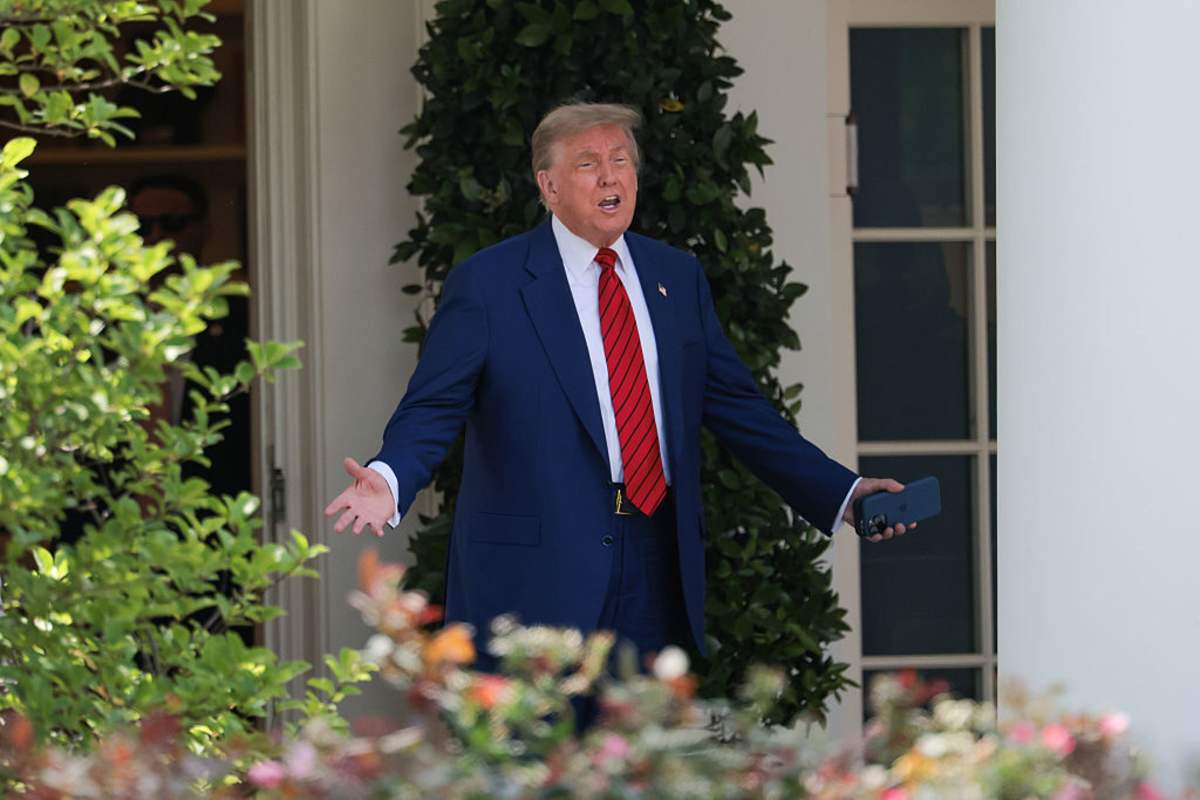
Donald Trump signals progress in Harvard talks
In a Truth Social post, Donald Trump wrote, “Many people have been asking what is going on with Harvard University and their largescale improprieties that we have been addressing, looking for a solution."
He continued, “We have been working closely with Harvard, and it is very possible that a Deal will be announced over the next week or so."
With a noticeable shift in his tone, Trump added, "They have acted extremely appropriately during these negotiations, and appear to be committed to doing what is right."
"If a Settlement is made on the basis that is currently being discussed, it will be 'mindbogglingly' HISTORIC, and very good for our Country. Thank you for your attention to this matter!" he concluded.
While specifics of the potential settlement remain undisclosed, the tone marks a significant departure from the months of tension between the administration and Harvard, suggesting a possible off-ramp from one of the most contentious policy battles of Trump’s presidency.
Federal judge blocks Donald Trump administration’s move to strip Harvard of its visa rights
Earlier on Friday, US District Judge Allison D Burroughs issued an indefinite injunction barring the Donald Trump administration from revoking Harvard’s ability to host international students and scholars, as per The Daily Beast.
This decision followed weeks of legal maneuvering after the Department of Homeland Security (DHS) stripped Harvard of its SEVP (Student and Exchange Visitor Program) certification in May, citing alleged policy violations related to “failure to meet federal standards” for monitoring visa-holding students.

The DHS move effectively halted Harvard’s ability to sponsor foreign students and scholars, which the administration said was warranted by the university’s “failure to take sufficient action” in addressing concerns on campus.
However, Judge Burroughs ruled that the government’s actions posed “irreparable harm” to both the university and its international community, allowing Harvard to continue enrolling foreign students while litigation proceeds.
The judge did not weigh in on Trump’s separate June 4 presidential proclamation, which denied Harvard-affiliated international students entry into the US. That ban remains temporarily blocked under an earlier order through Monday.
Donald Trump administration cited antisemitism concerns in crackdown on Harvard
At the core of the administration’s campaign against Harvard has been its claim that the university failed to adequately address antisemitism on campus, particularly in the aftermath of the October 7, 2023, Hamas attacks on Israel and subsequent conflict in Gaza.
Trump has frequently accused elite institutions, including Harvard, of promoting antisemitic rhetoric and harboring a broader “liberal bias.”
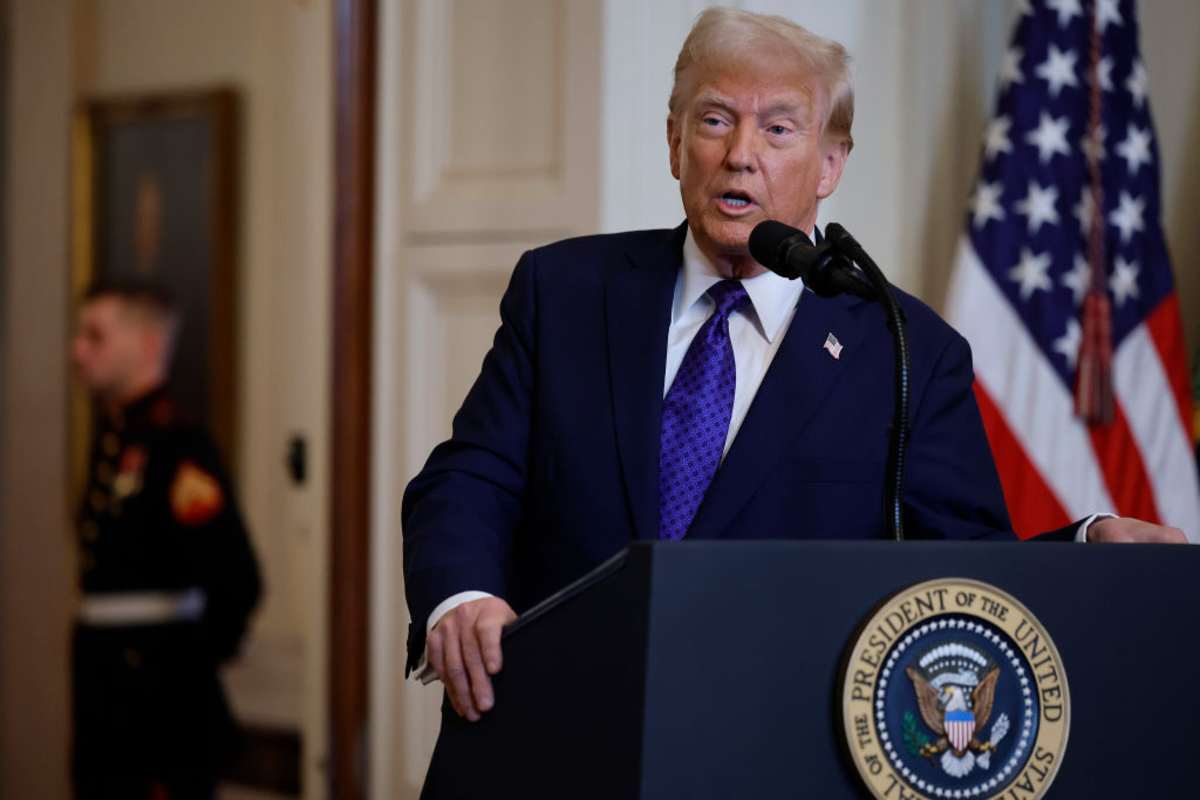
Following rising public pressure, Harvard released reports in early 2024 on antisemitism and anti-Muslim bias. University President Alan Garber apologized, stating, “We failed to meet the high expectations we rightfully set for our community.”
Garber also revealed that he had personally experienced antisemitism on campus, but pushed back against federal intervention, calling the administration’s demands an “unacceptable intrusion” into university governance. Harvard has since filed two lawsuits arguing that the government's funding cuts and foreign student restrictions are retaliatory and unconstitutional.

The crackdown has had a direct and chilling effect on the school’s international population. Roughly 6,800 international students, 27% of Harvard’s total enrollment, faced visa delays, confusion, and uncertainty.
Many were blocked from returning to campus, even after paying full tuition. Harvard’s affiliated research hospitals also experienced disruptions, as key federal funding for AIDS, cancer, and public health studies was frozen, resulting in layoffs and paused projects.
Harvard deal talks may involve a consent decree, but university remains silent
As of now, Harvard has not issued a formal response to Donald Trump’s post about the deal. The university did not respond to multiple media requests for comment, and it remains unclear how advanced negotiations are or what specific concessions are being discussed.

In contrast, Education Secretary Linda McMahon expressed optimism last week, saying the administration was "making progress" in discussions with Harvard and that consent decrees — court-enforced agreements — were being considered to resolve the dispute. Such agreements could involve appointing a monitor to oversee the university’s compliance with any deal terms.
In a possible effort to defuse political pressure, Harvard Corporation, the governing body of the university, appointed conservative attorney Kannon Shanmugam to its board last month.
The move comes as board chair Penny Pritzker, who served as the secretary of commerce under former president Barack Obama from 2013 to 2017, faces scrutiny from both federal officials and donors.

